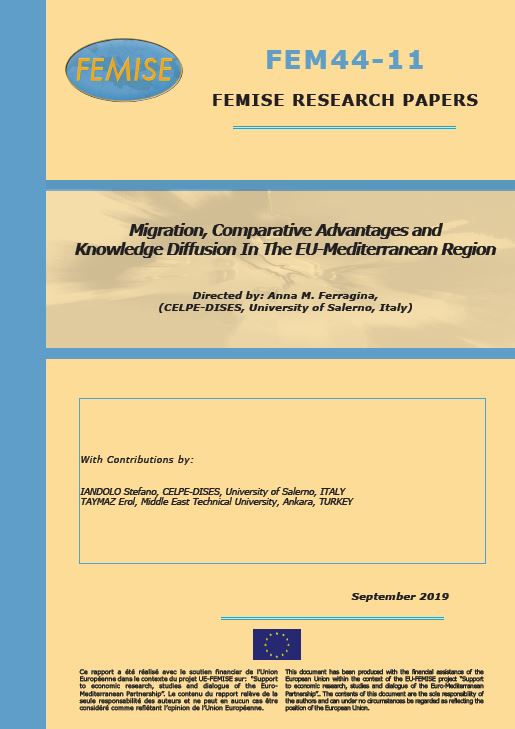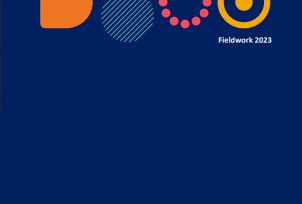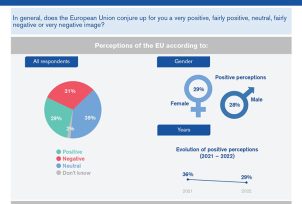Opinion Poll 2018 – Palestine (factsheet)

Two-thirds of Palestinians say they have good relations with EU, poll finds
Seven out of ten Palestinians feel their country has good relations with the European Union, and 63% say EU support contributes a lot to the development in the country. Sixty-six per cent of Palestinians are aware that the EU provides financial support to their country, and 77% of them say it is effective. These are just some of the findings of the latest annual opinion poll in Palestine, published by the EU Neighbours South project.
The survey – part of a wave of opinion polls carried out in seven southern Mediterranean partner countries – was conducted in the Palestinian territories from August-September 2018, with 1,003 people consulted in face-to-face interviews. Respondents were asked about their general perceptions of the EU and the values with which it is associated, about EU relations with their country, and the impact of EU financial support. The surveys also look at preferred sources of information, how people feel about their personal situation and the situation in their country, and their expectations for the future.
In general, Palestinians were slightly more positive in their perceptions of the EU than the regional average of the four Mashrek countries (Jordan, Lebanon, Palestine and Israel), but less so than in the three Maghreb countries (Algeria, Morocco, Tunisia).
Asked to describe relations with the EU, 70% said they were good, compared to an average of 65% in the Mashrek (74% in the Maghreb). Sixty-one per cent of those asked felt the EU had a positive influence on the development of their country (compared to a regional average of 57%). Sixty-six per cent of Palestinians were aware that the EU provided financial support to their country, and 77% of those said this support was effective.
Most Palestinians (63%) also felt the EU was an important partner, and 62% said the EU and Palestinians shared sufficient common values to cooperate. Fifty-nine per cent of Palestinians felt the European Union brought peace and stability in the region (compared to just 23% of Israelis who felt the same).
In more general terms, 54% of Palestinians had a positive image of the EU, compared to the Mashrek average of 45% (Maghreb 55%), while 26% had a neutral image and just 14% a negative image. The values most frequently associated with the EU were equality between women and men as well as human rights; the values least associated with the EU were solidarity and religious freedom.
Palestinians feel EU support has contributed the most in the areas of education (32%) development of infrastructure (29%) and economic development (26%), and are keen for the EU to play an even greater role in education, as well as in the area of human rights.
In general, Palestinians think that the European Union’s image in their national media is positive. On television, fifty-eight per cent of them believe that the image is very to fairly positive, while ten per cent believe it to be very to fairly negative. Television is followed by websites (54% positive, 22% neutral, 16% negative) and radio (49% positive, 29% neutral, 15% negative).
Palestinians are generally satisfied with their lives (54%, compared to an average of 68% for the Mashrek, and 72% for the Maghreb). But they are worried about the employment situation in their country (68% feel it is bad, the same as the regional), and 42% are afraid that it will get worse in the next 12 months. Just under a third (31%) also think their life in general will get worse (18% think it will get better), while 45% think the economic situation will get worse.
The EU Neighbours South regional overview report and factsheets are available here.
To find out more about EU – Palestine cooperation and partnership, go here.
Latest Publications






























 Syria
Syria 



